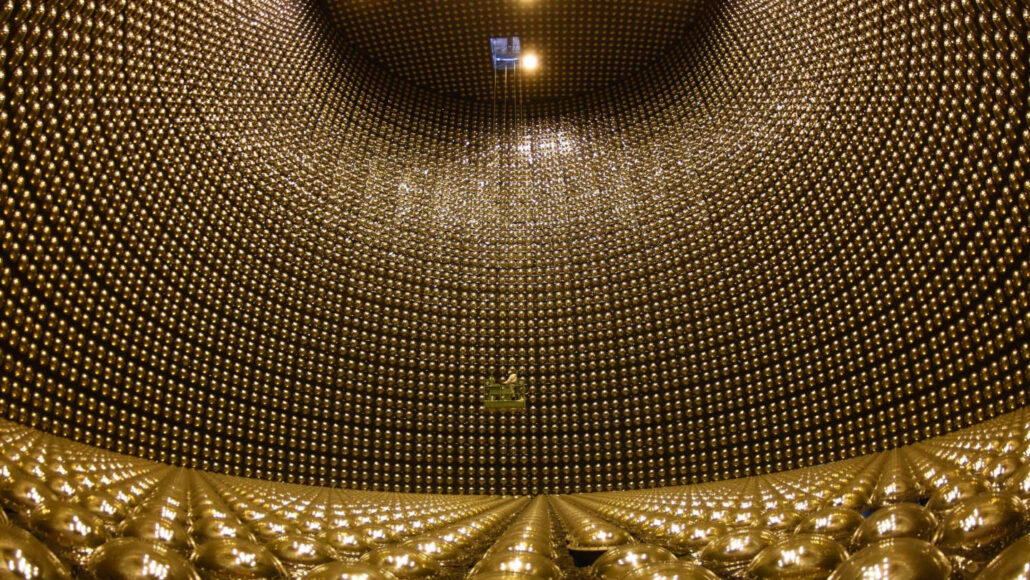Every second, trillions of “ghost particles” pass through your body. That may sound spooky, but fear not. These itty-bitty particles are neutrinos, and they cause no harm. They get their nickname from the fact that they hardly ever interact with other matter. In fact, they can zip through the entire Earth without a trace.
Neutrinos are so lightweight that for a long time, physicists thought the particles had no mass at all. Two researchers won the 2015 Nobel Prize in physics for proving they did. But the neutrino’s mass is tiny. Each one has less than a millionth of the mass of an electron. Neutrinos also have no electric charge, adding to their stealth.
As a result, neutrinos are very difficult to detect and study. To net neutrinos, researchers build huge detectors. Sensors in the machines spot the few, far-between flashes of light caused by rare neutrino interactions with nearby matter.
Despite being the introverts of the particle world, neutrinos are important for understanding the universe. Neutrinos are flung out by stellar explosions and flaring galaxies called blazars. Studying such neutrinos helps scientists better understand such high-energy phenomena. Neutrinos may also help solve one of the biggest questions in the universe: Why is the cosmos made up mostly of matter and not antimatter?
- Karlston
-

 1
1



Recommended Comments
There are no comments to display.
Join the conversation
You can post now and register later. If you have an account, sign in now to post with your account.
Note: Your post will require moderator approval before it will be visible.